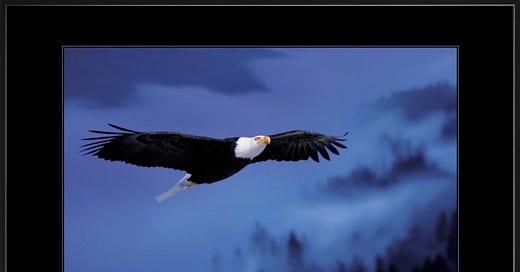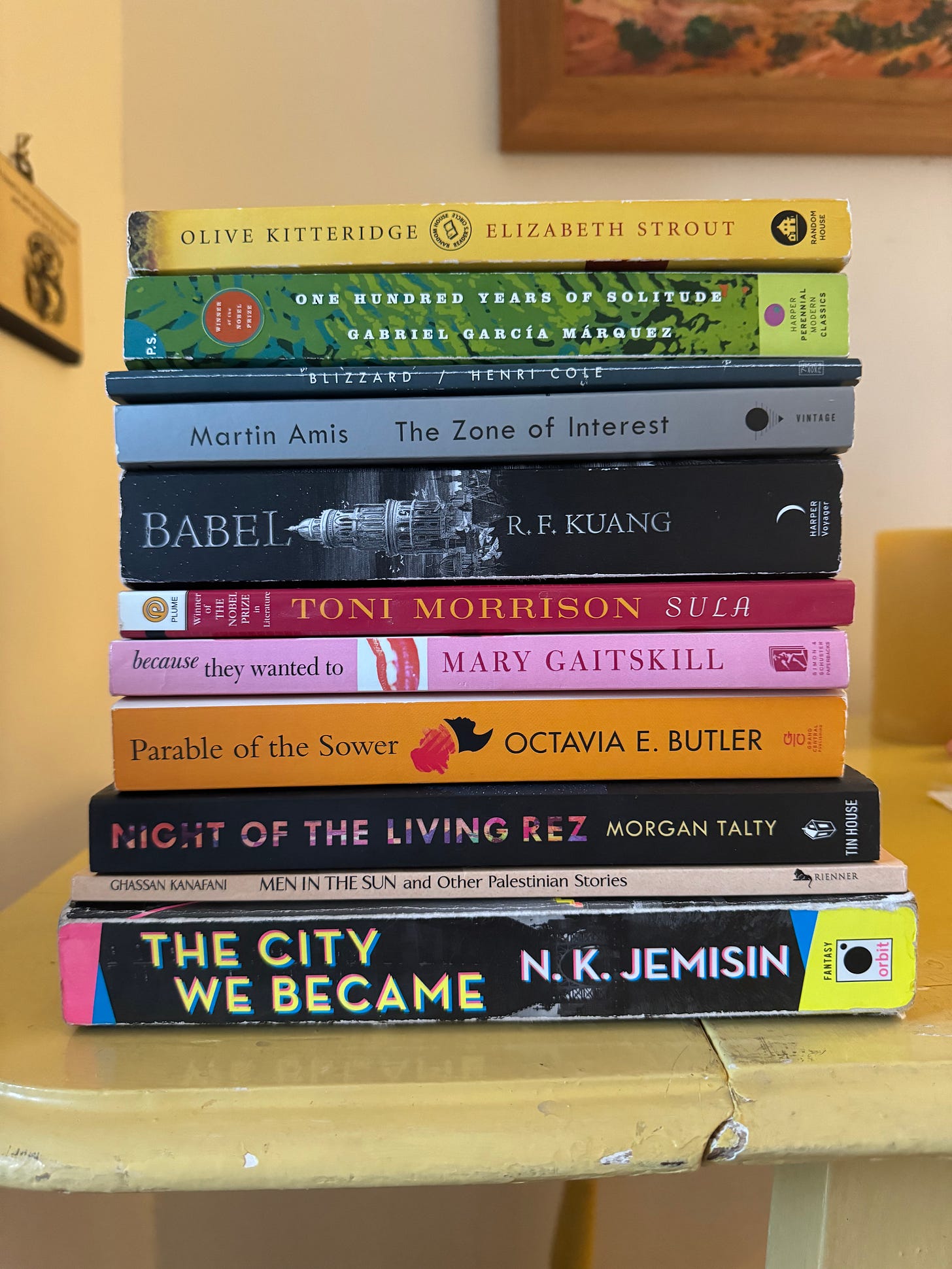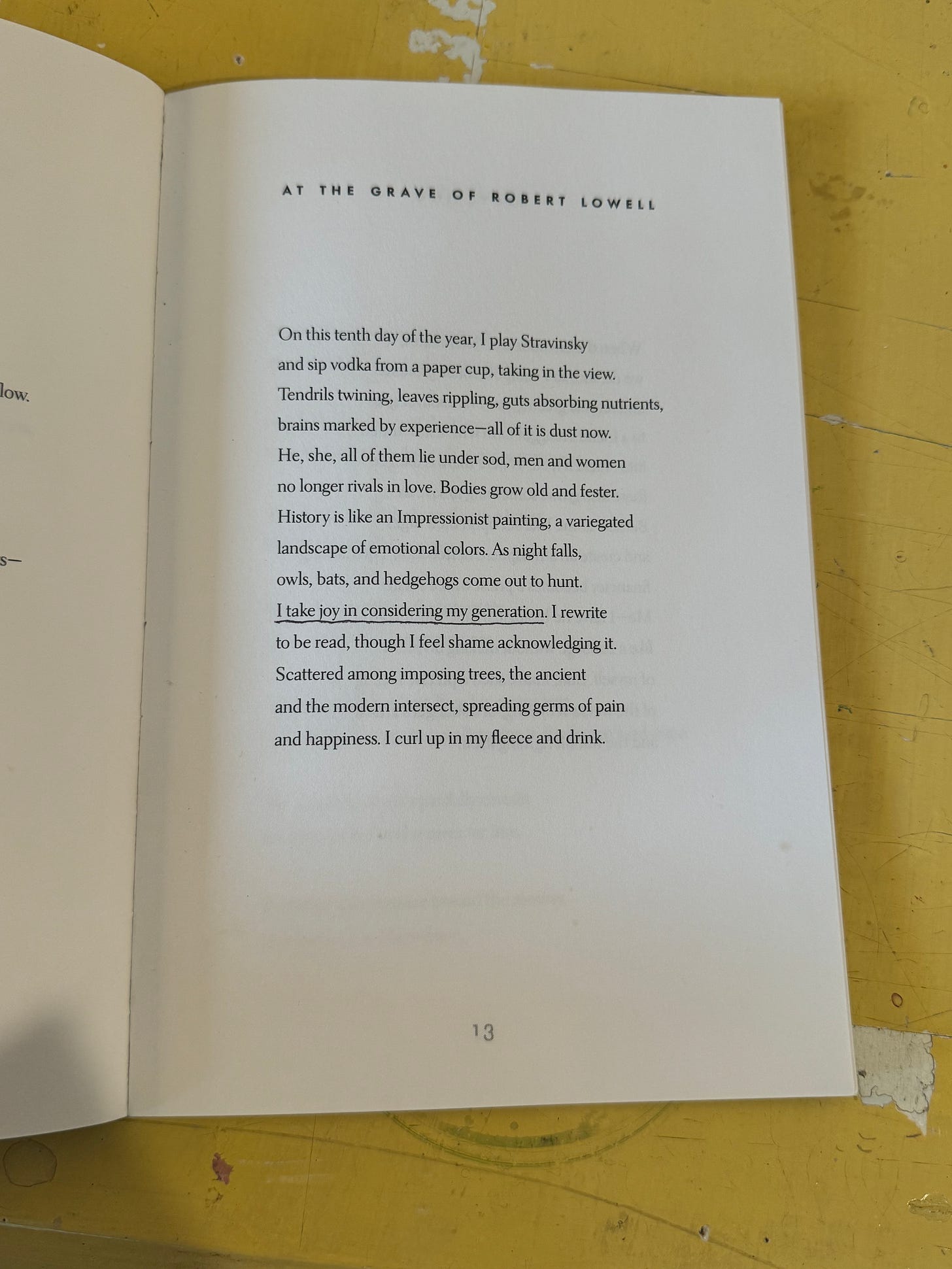When someone asks me how to start reading— either they’ve never been a reader or they’re attention has been so wholly captured by the internet they stopped reading books— my immediate answer is to be curious and honest about your current reading level. I see so many would-be readers get stuck because they choose books they think they “should” be reading. Books that are classic or niche or cool. If you’re not a regular reader, you should read absolutely anything that will get you to flip the pages (recs here and here). Lean into your reading level and watch it expand. Unlike the binge media (Tik Tok, Netflix, Twitter) we’re nursed on that acts like an algorithmic downward spiral, reading is expansive. When you get back into the habit of reading, you get better at reading and more options are available to you. For example, my good friend loves romantasy— Fourth Wing was her favorite book this year. I love that for her. The other day, she was reading Émile Zola for the first time. Which is to say, so much dialogue about reading unintentionally cages a reader. All reading is a gateway and that is why we need it in this moment more than ever.
I validate whichever way you seek comfort right now. I see all over the internet bids put forth for cozy literature. I don’t blame anyone for reading whatever they read right now (heck I advocated for cozy literature in my last post to get through election week). One thing I notice about a lot of cozy lit is that it’s very white and, in order to keep things light, it’s full of answers rather than questions.
In different moments, I reach for different books— some for distraction, some for nourishment, some for a mix of the two— and I don’t blame or shame myself either way. In these times, I look to Octavia Butler and N.K. Jemisin who ask what comes after this? I look to Édoard Louis’ A History of Violence. It’s about an act of violence but it’s also about colonialism and whiteness. I look to poets like Henri Cole and Ada Limón. Writers that ask the deepest of questions about history and humanity. They ask, can it also be this? How do we forgive? How do we forgive ourselves? How do we forgive our shame? Should we? How do we even begin looking at it?
In this time, I read writers that dare to ask questions in the face of crippling absolutes. If fascism functions in absolute answers, we must respond with questions, with seeds, with openness. There’s a reason they want to ban books and to say they want to due to identities of the writers is true and it’s not the whole truth. Fascism is insistent on shortcuts, direct off-ramps to “truth.” In real, human life, truth is in a question. Truth is ever expansive. Be curious why they’re threatened by literature and engage with the writers and the books they’re most threatened by.
If you’re not there yet, that’s fine. More than fine! I’m not there either. My screen time has averaged 7+ hours since the election but when you’re ready, when we’re ready, I dare you to take the gentle hand of literature. It will lead you to the delicate center at the depths of what we’re dealing with.
Each day for the rest of the year, I’ll be sharing a book that offers a portal. By watching an author pose difficult questions about humanity and try to answer those questions through story, we get true nourishment. I think questions offer a truer nourishment than, say, cookie cutter answers that we might find on the walls of an elementary school classroom (though I do love an inspirational poster).
Five books to get you started:
Last Night at the Telegraph Club, Malinda Lo
Blizzard, Henri Cole
Parable of the Sower, Octavia Butler
A History of Violence, Édoard Louis
Martyr!, Kaveh Akbar
Thank you for reading! I would love to hear your thoughts on any & all of this. If you have a reading recommendation that helped you ask new questions about this human life, please comment it below.
Zoe
A Henri Cole poem for the road:







Anything adrienne maree brown, but specifically emergent strategy. This reminds me I should reread!
honestly just saw wicked and it takes on hard questions!